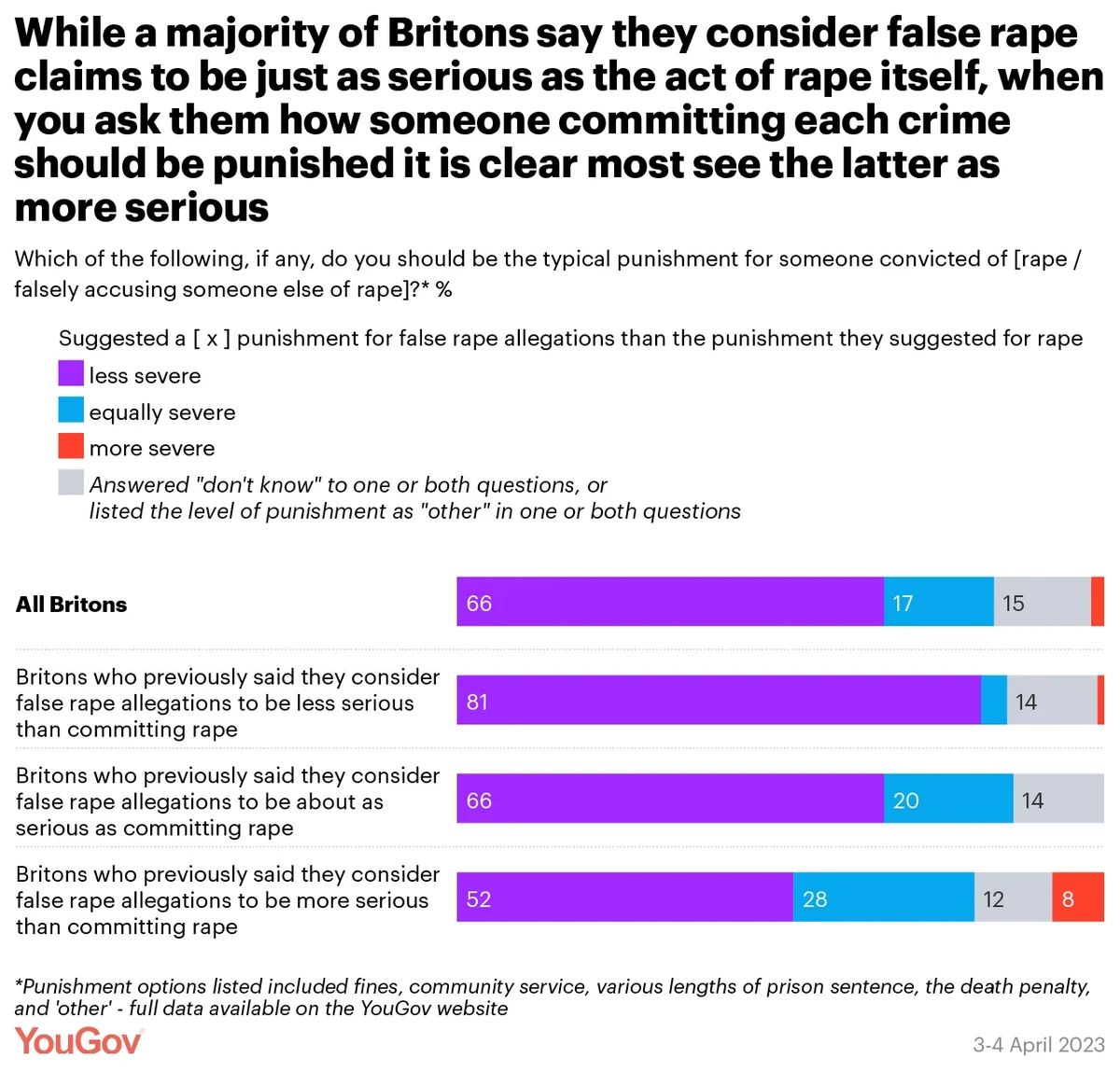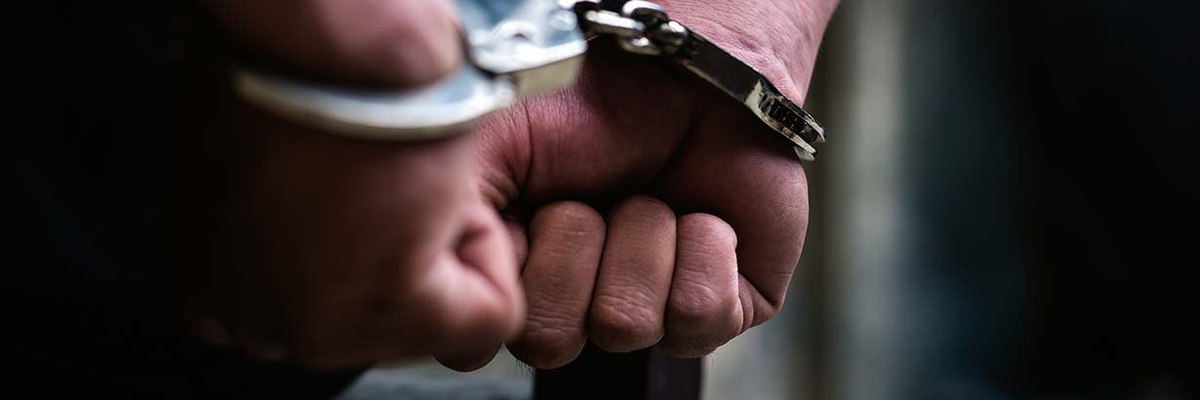While most Britons claim false rape allegations are as serious as the act of rape itself, when asked how each should be sentenced, their answers clearly contradict this
Last month, the media extensively reported on the sentencing of Eleanor Williams, who was given 8 and a half years in prison for falsely accusing multiple men of raping her.
Although it is very hard to put a figure on it, research suggests false rape claims are rare. Separate studies by the Home Office and Ministry of Justice suggest a figure of around 3% of reported rapes may be false.
But how many reports of rape do Britons think are false, and what do they think is the suitable punishment when it is found that a report is in fact a false accusation?
Most Britons think false rape claims make up only a small portion of reported acts of rape
The large majority of Britons (74%) think only a small proportion of rape claims are not true. This is split evenly between 36% who consider it a “fairly small proportion” and 37% who say a “very small proportion” (a further 1% answered “none of them”).
However, there are a significant number who doubt the validity of large numbers of rape reports, with 16% of Britons thinking around half or more of them are false.
Men are more likely than women to believe there is a higher prevalence of false accusations, at 20% to 11%. Likewise, men are notably less likely to think that “very small” numbers of rape allegations are false than women (28% vs 45%).
There are also clear trends across age groups, with younger Britons believing false accusations are more rare than older Britons. Those aged 18-24 are the most likely age group to say a “very” small portion of reports are false (48%), compared to 32% of those over 65.
Conservative voters are also more likely than Labour voters to think half or more reports of rape are false, by 24% to 8%. They are likewise far less likely to think “very small” numbers are false, at 28% versus 51%.
While a majority of Britons say they consider false rape claims to be just as serious as the act of rape itself, when you ask them how someone committing each crime should be punished it is clear most see the latter as more serious
Most Britons say falsely accusing someone of rape is just as serious as committing the act of rape itself (61%), and a further 14% say it’s actually more serious. On the other hand, one in five (20%) say it’s less serious.
However, most clearly contradict themselves when asked what they think the typical punishment for each crime should be. While a majority of Britons (57%) say rape warrants a punishment of 10 years in prison (or harsher), just 16% say the same of making a false rape claim.
Among those Britons who say they consider rape and false accusations of rape to be equally serious, fully 66% gave a harsher prison sentence for rape. Even amongst those who say a false allegation of rape is more serious than rape itself, 52% chose a tougher sentence for a rapist than for a false accuser.

Men and women generally agree when it comes to the sentence someone convicted of rape should get, but women are slightly more likely to say a more lenient punishment is appropriate for a false allegation than men.
Younger Britons want harsher punishment than their elders for those convicted of rape, with around a quarter (27%) thinking over 20 years in prison is an appropriate sentence compared to 9% of those aged 65 and above. On the other hand, compared to their older peers, those aged 18-24 generally think a more lenient sentence is appropriate for a false accusation.
Photo: Getty








